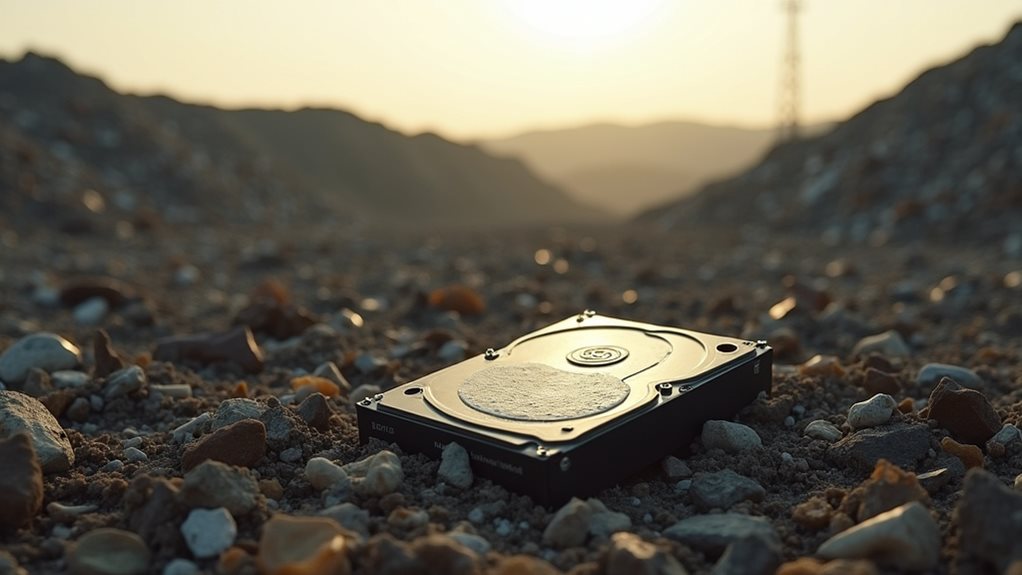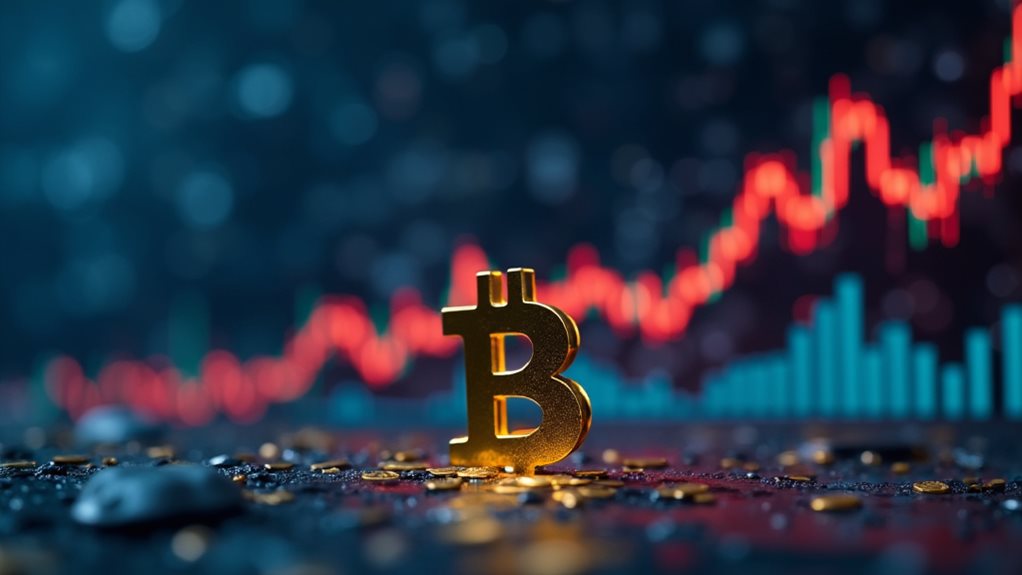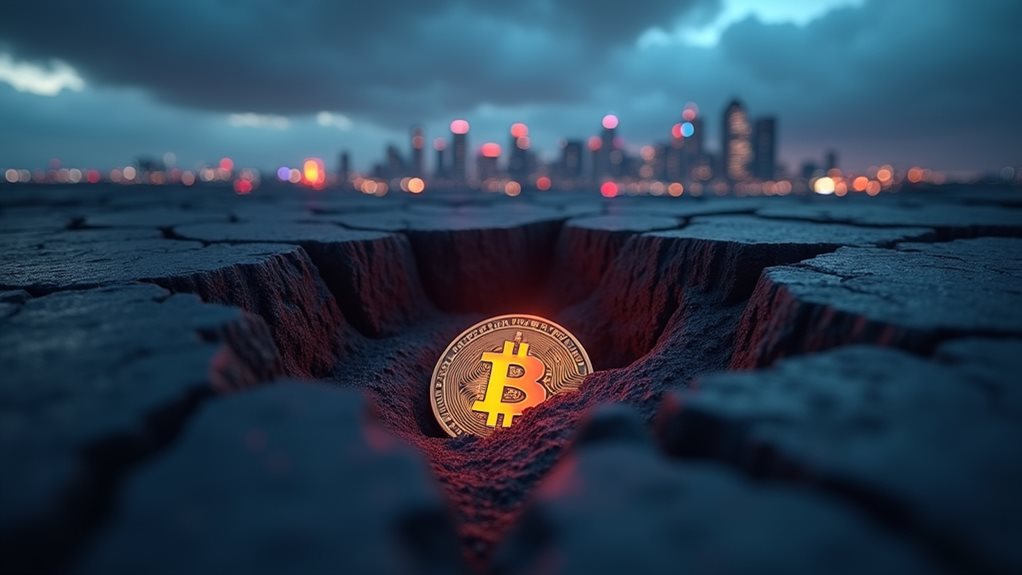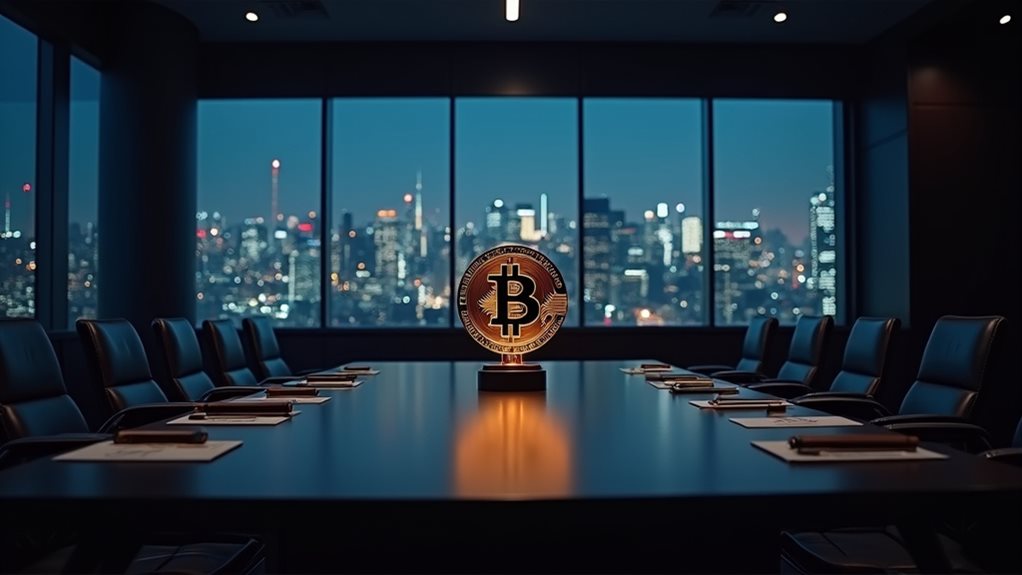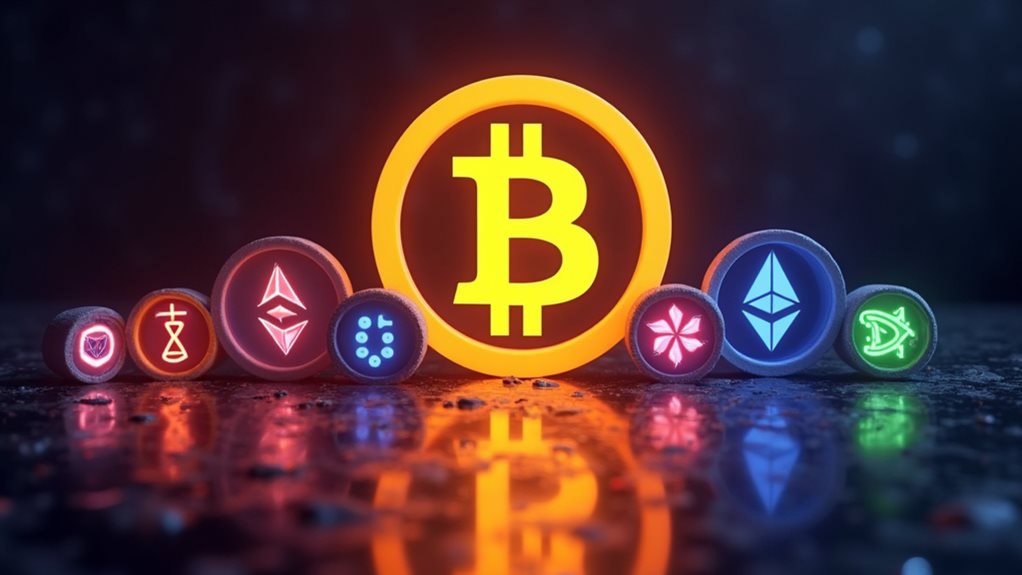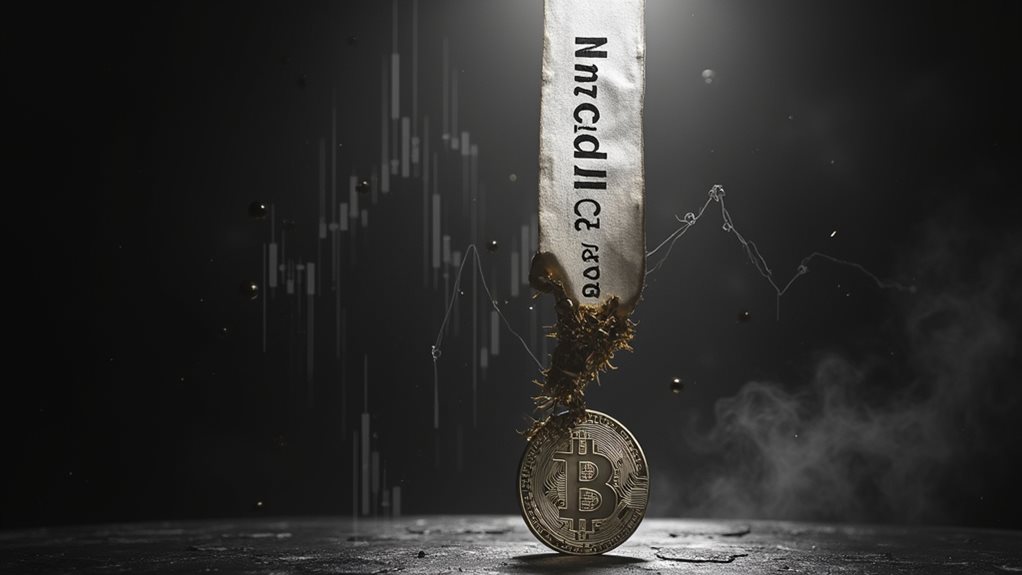James Howells’ twelve-year crusade to dig up a hard drive containing 7,500 Bitcoins has officially crashed and burned. The Welsh man accidentally tossed the drive in 2013, back when Bitcoin was pocket change. Now it’s worth around $742 million, buried somewhere in a Newport landfill. Local authorities kept saying no to his excavation requests, citing environmental concerns and costs. One expensive oops that’s staying buried. The saga reveals harsh truths about cryptocurrency ownership that every investor should understand.
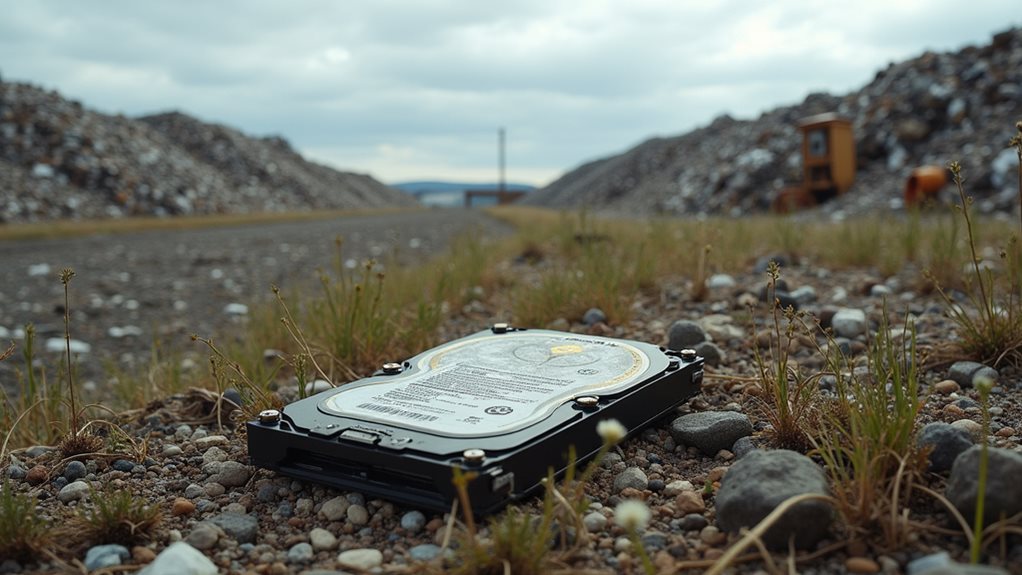
While most people worry about losing their car keys or wallet, James Howells managed to throw away something far more valuable—a hard drive containing 7,500 Bitcoins.
Back in 2009, Howells was mining Bitcoin when most people had never heard of cryptocurrency. He accumulated his digital treasure when Bitcoin was practically worthless. Then came 2013. During a routine cleaning, he accidentally tossed the hard drive containing his private key into the trash. Oops.
One man’s spring cleaning became cryptocurrency’s most expensive mistake when a hard drive worth hundreds of millions hit the trash.
The timing couldn’t have been worse. Bitcoin’s value started climbing, and by 2017, those lost coins were worth around $150 million. Fast forward to February 2025, and we’re talking about £597 million, or roughly $751 million. That’s a lot of money sitting in a dump. Each Bitcoin can be divided into one hundred millionth units called Satoshis, making the loss even more staggering.
For twelve years, Howells has been trying to convince local authorities to let him dig up the Newport dump site. The answer has consistently been no. Environmental concerns, cost issues, and the sheer impossibility of finding one hard drive among years of garbage have made officials reluctant to approve any excavation.
The case perfectly illustrates the brutal reality of cryptocurrency ownership. Bitcoin’s blockchain security is rock solid, but lose your private key and your money is gone forever. No customer service department can help you. No password reset option exists.
This isn’t the only massive Bitcoin loss story. The Mt. Gox exchange, which started as a trading platform for virtual cards in 2007, became a major Bitcoin exchange before suffering devastating hacks beginning in 2011. Millions of dollars in Bitcoin vanished.
Howells’ saga has become a cautionary tale about digital asset management. While Bitcoin has evolved since its 2008 creation by the mysterious Satoshi Nakamoto, the fundamental rule remains unchanged: lose your private key, lose your Bitcoin. The Welsh computer engineer had been building computers since age 13 and taught himself about Bitcoin in December 2008 due to his skepticism towards traditional currencies. The first operational Bitcoin Genesis Block was mined on January 3, 2009, marking the official launch of the network that would eventually make Howells’ lost coins so valuable.
The regulatory environment has matured since Bitcoin’s early days, when black markets like Silk Road were among its primary users. The US Financial Crimes Enforcement Network began classifying Bitcoin miners as money services businesses in 2013, bringing more oversight to the space.
After twelve years of trying, Howells’ treasure hunt appears to have reached its end. Sometimes the most expensive lesson is the one you never intended to learn.
